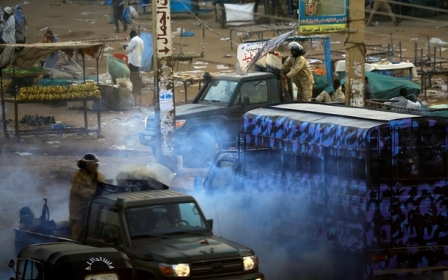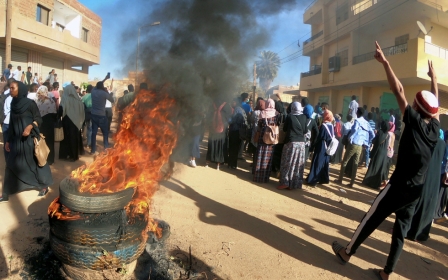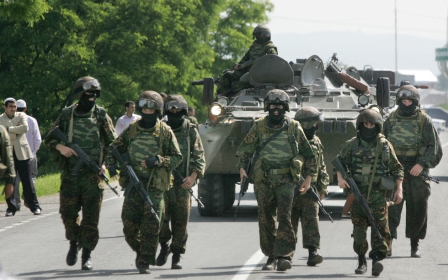Sudan's under-fire president Bashir mocks protests against his rule
Sudan's President Omar al-Bashir dismissed the protests that have been rocking the country for a month and a half on Thursday, mocking demonstrators' use of social media.
His comments came as he told supporters in the eastern town of Kassala that he was re-opening the Sudanese-Eritrea border, which has been closed for a year.
"Changing the government or presidents cannot be done through WhatsApp or Facebook," Bashir said.
"It can be done only through elections. It's only the people who decide who will be the president."
Since the early days of the protests, Sudanese internet providers have been restricting the use of social media applications that have been used to spread information, according to internet rights advocates NetBlocks.
Changing the government or presidents cannot be done through WhatsApp or Facebook
- Omar al-Bashir
"The situation is difficult, but not impossible," the president told Thursday's rally. "We will concentrate all efforts on satisfying the people, particularly the young."
Activists say at least 50 protesters have been killed since the protests began, while the government puts the number at 30. The protests have been described as one of the most serious challenges yet to Bashir's 30-year rule.
Bashir also took the opportunity in his speech to announce his decision on the Sudan-Eritrea border.
"I announce here, from Kassala, that we are opening the border with Eritrea because they are our brothers and our people. Politics will not divide us," he said in televised remarks before scores of supporters in the eponymous capital of the eastern state of Kassala.
The border was ordered closed in January last year following Bashir's declaration of emergencies in Kassala and North Kordofan states, reportedly to round up illegal weapons in the two states.
Thousands of Eritreans used the border with Sudan to flee their government and its policy of indefinite military service, which it pledged to end last year, then travel northwards for dangerous journeys crossing the Mediterranean to Europe.
Middle East Eye propose une couverture et une analyse indépendantes et incomparables du Moyen-Orient, de l’Afrique du Nord et d’autres régions du monde. Pour en savoir plus sur la reprise de ce contenu et les frais qui s’appliquent, veuillez remplir ce formulaire [en anglais]. Pour en savoir plus sur MEE, cliquez ici [en anglais].




